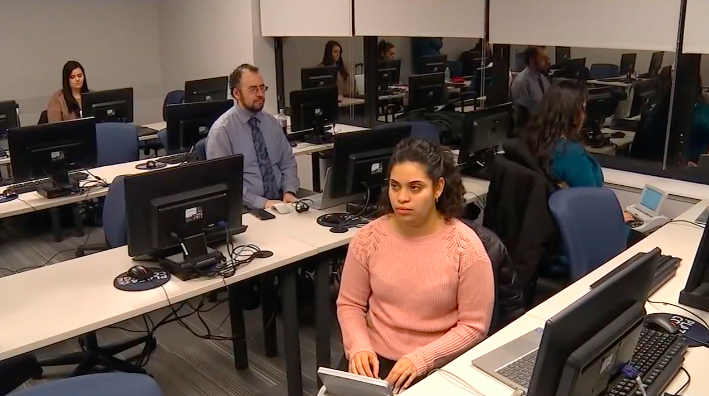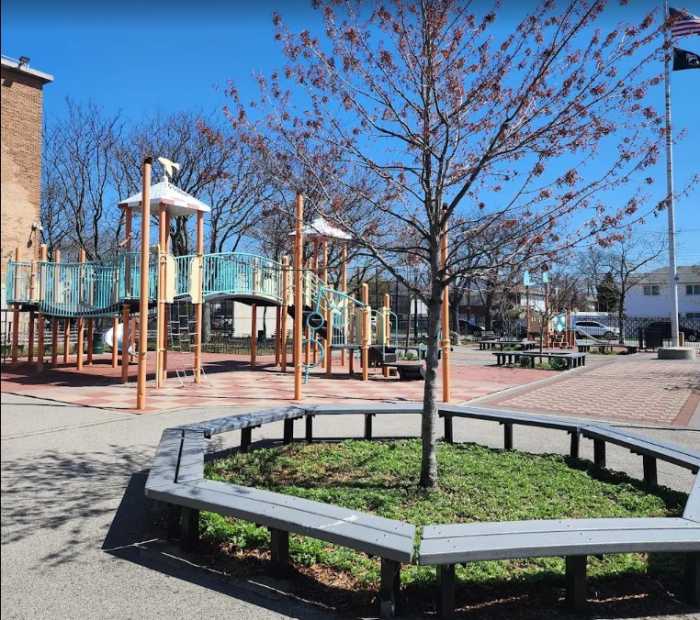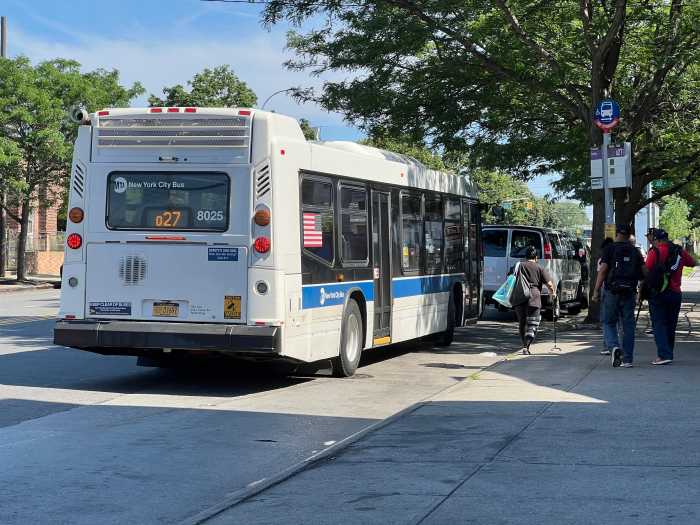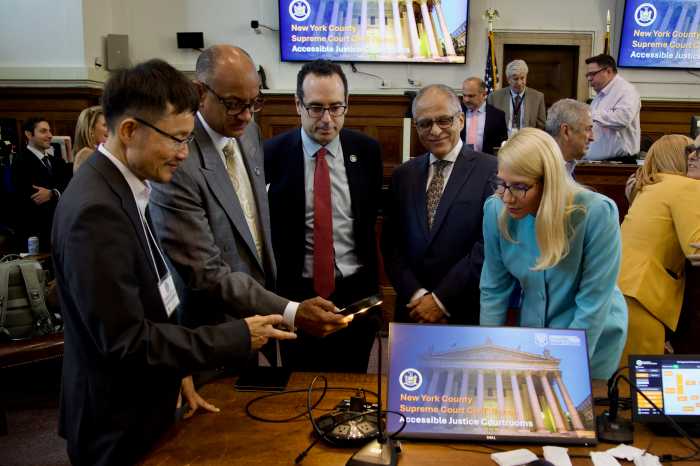Courtrooms across the nation are facing a shortage of court reporters, also known as court stenographers, as well as a growing need for real-time captioners, which is prompting educators and legal professionals to sound the call for more individuals to pursue the critical and well-paid profession.
Plaza College in Forest Hills, the only college in the city to offer court reporting classes, is currently hosting with a series of information sessions, presentations and courtroom tours with dozens of their students through Feb. 11.
“Court reporters are the backbone of the court system,” Queens District Attorney Melinda Katz said. “Court reporters create the official trial transcript essential in jury deliberations, appeals and other aspects of the trial process. I encourage anyone looking for an interesting and rewarding career to consider learning this critical skill.”
Decreasing numbers of court-reporting graduates, increasing retirement rates, and an abundance of captioning opportunities have created a shortage of 5,500 court reporters across the country, according to the National Court Reporting Association (NCRA).
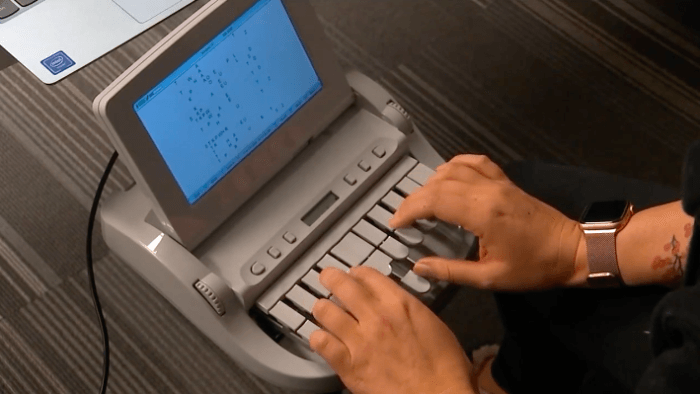
The availability of court reporters is critical to the timely scheduling of court trials, hearings, depositions and grand juries. Captioners are essential in providing those with disabilities with access to education, the arts and entertainment.
Recently, the role of the stenographer has expanded with a national focus on the urgency to increase equity and accessibility for the hearing impaired. The need for closed captioners has created more jobs for these highly skilled professionals beyond the courtroom, making them an integral component of theaters, sports arenas, television broadcasts and classrooms.
The pandemic compounded the necessity of real-time captioning for live events, online course offerings and meetings through Zoom and other online conference technology.
“The ability of someone to listen to courtroom banter, a theatrical performance or sports commentary, a process in real-time, and record it accurately at 225 words per minute requires a high skill set,” said Karen Santucci, director of Plaza College’s Court Reporting program and the NCRA’s New York Delegate.
In most jurisdictions across the nation, no trial can take place without a court reporter. They capture the definitive record of all court proceedings, marking exhibits and creating the official transcripts, with a front-row seat to history. A court reporter’s transcript is recorded at 225 words per minute and is a critical consideration in jury deliberations, appeals and more. The work of court reporters has been supplemented with audio recording in the past, but technology is often flawed, unreliable and, in the case of legal matters, considered inadmissible.
“As one of the largest and busiest court systems in the United States with more than 2 million annual filings, we are constantly looking to hire court reporters,” Acting Chief Administrative Judge Tamiko Amaker of the NYS Office of Court Administration said. “Any graduate interested in a fulfilling career in the courts may be hired as a provisional employee, working in the criminal, civil and family court with the potential of moving up to the Supreme Court. You would become a member of the small group of non-judicial professionals who, daily, keep our court system open, functioning and available for all New Yorkers.”
Plaza College is the only college in New York City to offer a court reporting program and one of only a few in New York state. Graduates earn an associate degree, but Plaza educators note that many of their students are career changers — students who have already earned some form of a college degree but have been unable to secure a satisfying and productive career.
Joshua Edwards, a member of the Plaza College faculty, fits this paradigm. A former performer, Edwards moved to New York in 2008 to pursue a career in the theater but transitioned his Broadway dreams into a role captioning some of the most prominent live performances in the country.
The need to earn an income while awaiting his big break brought him to court reporting school, and in 18 months he had graduated with skills in what he soon realized to be one of the most in-demand jobs in the country. Today, as a professional court reporter, captioner and co-owner of stenographic reporting company StenoCaptions LLC, Edwards has been tasked with generating captions for in-house audiences at the New York Philharmonic and other iconic venues. He has served as the official captioner at the Tony Awards for the past four years.
He also offers his services in universities, public hearings, legal depositions and other arenas where individuals who are hard of hearing require services under the Americans with Disabilities Act. Edwards is also involved in CRCW events, including a CART-Yoga retreat hosted by NY State Court Reporters Association.
“The education we provide prepares students for a rewarding and flexible career, with
several avenues that these professionals may pursue,” Santucci said. “The ability to do it from home truly increases the accessibility of the program and the flexibility of this successful and rewarding career.”
Plaza offers students the opportunity to learn court reporting and captioning skills online through synchronous classes led by instructors who can monitor their hand movements on a stenography machine. For more information, visit the Plaza College website here.

